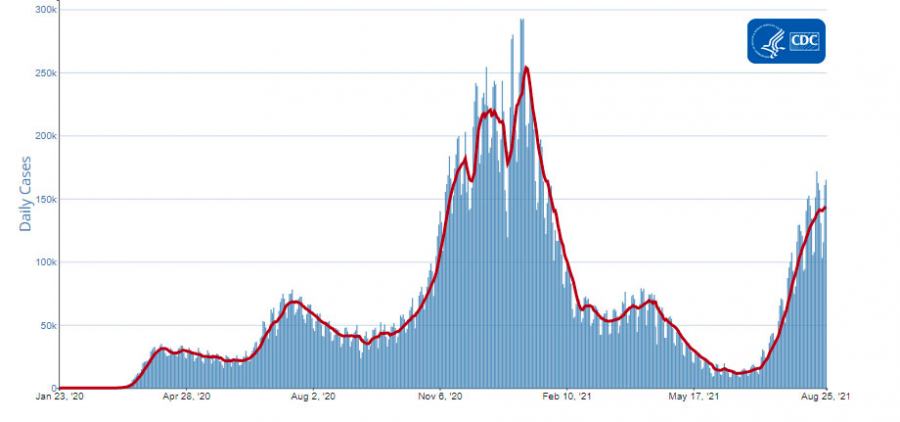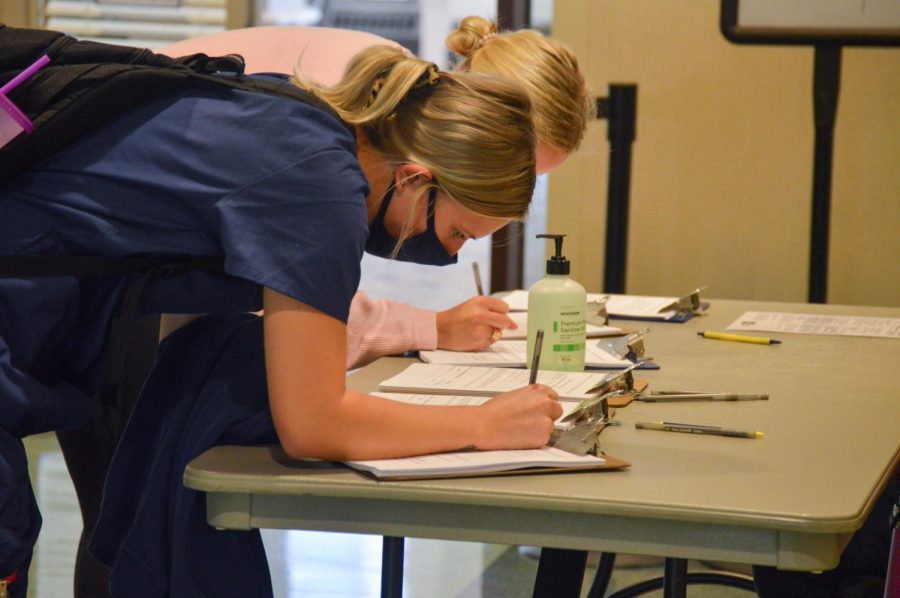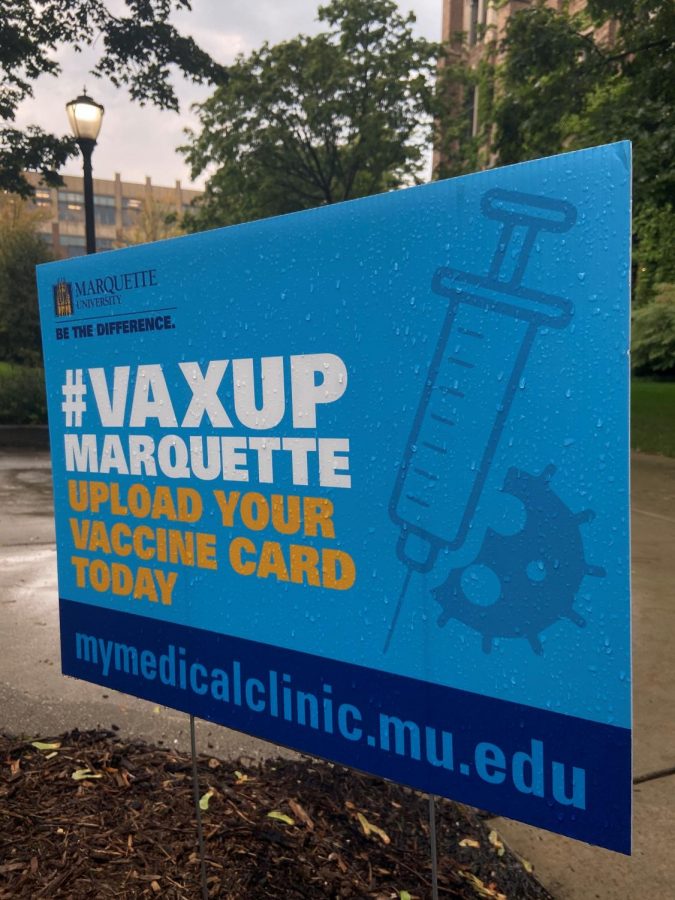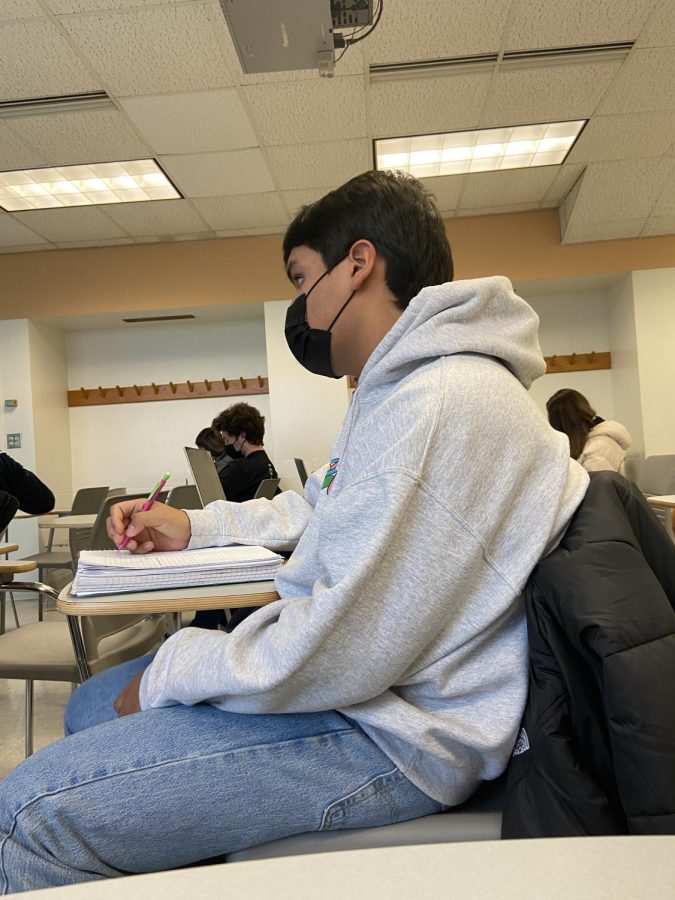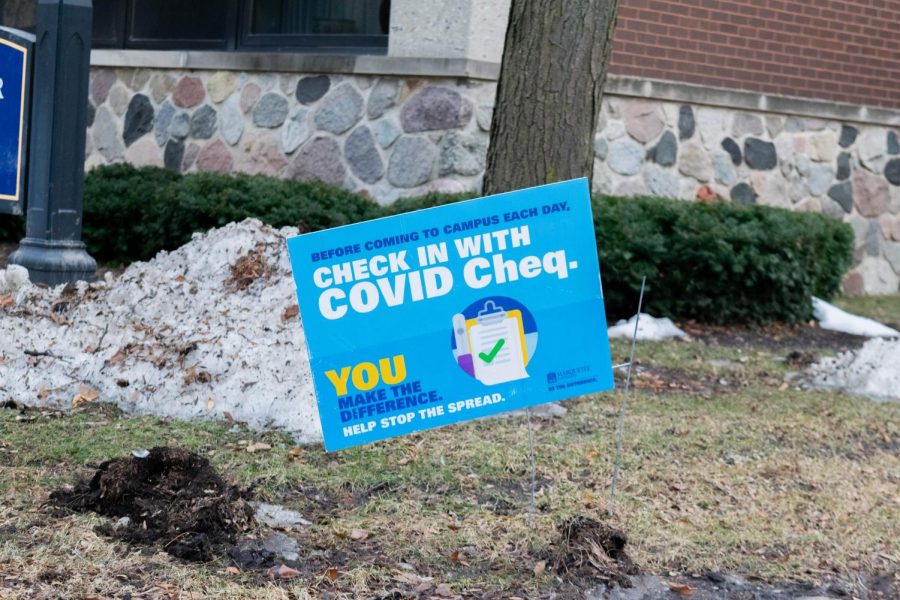The world has been in a pandemic for nearly a year and a half, after the World Health Organization declared March 11, 2020 that the COVID-19 outbreak could be characterized as a pandemic. Although we’ve all been experiencing this pandemic, we haven’t experienced it equally across countries and communities.
Nearly 624,000 people have died from COVID-19 in the United States, and over 38 million COVID-19 cases have been reported, according to updated data from the Center for Disease Control and Prevention.
Soon after WHO’s declaration, former President Donald Trump declared COVID-19 as a national emergency March 13, 2020.
Cities across the U.S. then mandated stay-at-home orders, the nation’s economy plummeted and at one point, the population experienced the highest level of unemployment in the U.S. since 1948.
COVID-19 cases soared, and armed protestors rioted against stay-at-home orders and mask mandates. The U.S. passed 100,000 COVID-19 deaths May 28, 2020, and reached 2 million COVID-19 cases by June 10, 2020.
Now there are challenges with the COVID-19 vaccination campaign, with only about 52% of the U.S. population being fully vaccinated as of Aug. 30. Among states, there is even more inconsistency, with states like Wisconsin having a 53.5% vaccinated population and states like Alabama having a 37% vaccinated population.
Throughout the past year and half, the U.S. has struggled with creating consistency in its response to COVID-19, such as states like Texas lifting their mask mandates despite low vaccination rates.
Throughout this uncertain time, there has been a lot of tension between people wanting to maintain their individual rights and people wanting to make decisions that are best for the collective good. At times, these haven’t aligned, which has resulted in rising COVID-19 cases and deaths.
For example, rioters stormed state capitol buildings in states like Michigan, Ohio and Kentucky, rather than continuing to follow the CDC health guidelines to stay at home to slow the spread of COVID-19.
And when people didn’t want to wear masks, they protested again.
While individual freedoms are an important foundational value of the U.S., in times of national emergency like the COVID-19 pandemic, we must give up some of our freedoms for the greater good of society. This is something that has been largely absent from the U.S. in the past year and a half.
If you don’t have a preexisting medical condition that prevents you from getting the COVID-19 vaccine, you should get vaccinated. If you are apprehensive about getting the COVID-19 vaccine, the Pfizer-BioNTech vaccine has recently been approved by the U.S. Food and Drug Administration after undergoing the agency’s standard process for reviewing the ” … quality, safety and effectiveness of medical products.”
Getting vaccinated is especially important as COVID-19 cases are on the rise again.
Many cities like Milwaukee are reverting back to encouraging or requiring people, regardless of vaccination status, to wear masks in indoor public spaces, as COVID-19 cases increase across the country with the Delta variant being more transmissible than previous strands. Earlier this month, COVID-19 cases caused by the Delta variant surpassed the peak number of daily cases from summer 2020, when COVID-19 vaccinations were not available yet.
We are slowly moving forward, but are experiencing stages of setbacks because we are not acting against COVID-19 as a united country.
We have to be flexible, and if wearing a mask again means slowing the spread of the Delta variant and protecting the health of those who cannot receive a vaccination, whether because of age or health condition, we should do it. We will never be close to the end unless we understand that sometimes our individual rights cannot come before what is best for the collective good.
This story was written by Alexandra Garner. She can be reached at alexandra.garner@marquette.edu

